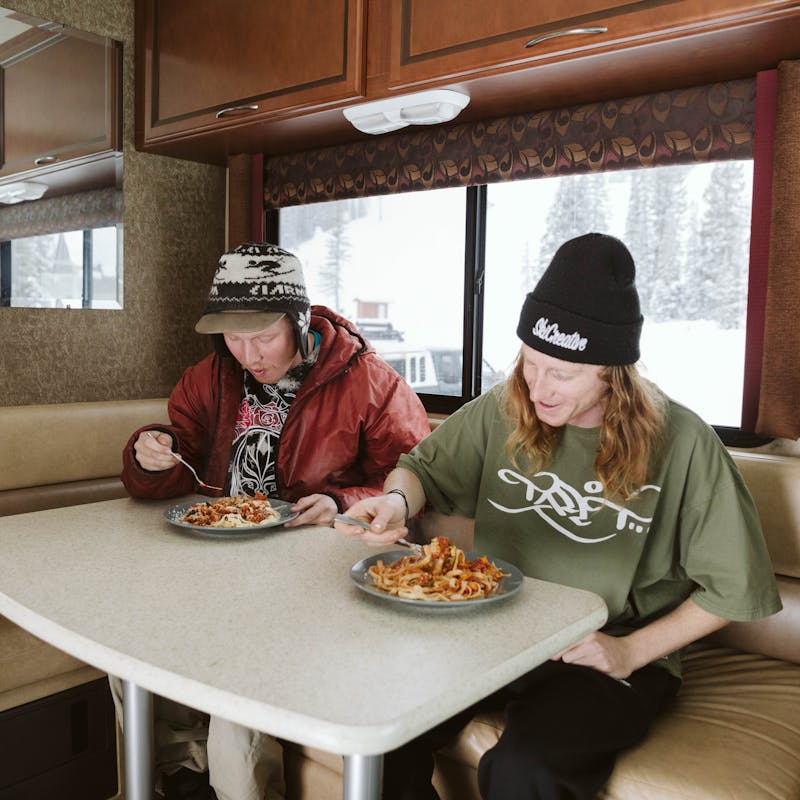Keep a full propane tank. A full propane tank ensures I can run my furnace, stove, and water heater as much as needed. When I’m running the generator, I’ll use an electric heater when I’m inside and can keep an eye on it. I also pack a backup mini-propane heater for emergencies and extra heat. Before every trip to cold weather, I take a moment to test my generator and make sure it’s running smoothly. Without emergency heat in a cold climate, it can be easy to compromise your safety. Best case scenario, I’ll never have to use my back-up heater. Worst case scenario, I’m ready to tackle bad weather head-on.
Always have emergency gas. A five-gallon gas can proves useful in an emergency, both for ensuring you never run out of fuel on the road, and in case your gas level ever drops too low to run the generator. That generator can be the difference between a night spent near-freezing and a night spent sleeping soundly when unexpected weather rolls through. I try to keep the RV gas tank above 50 percent full when I park somewhere. I also make sure to have five gallons of gas on hand, and a backup portable generator, just in case.
Overpack on tools and emergency gear. In the case of your safety in freezing-cold temperatures, it’s always better to be a little over-prepared than underprepared. I always pack winter emergency essentials: snow melt, a shovel, a heavy duty tow rope, tire chains, jumper cables, orange traffic cones and a few flares. It all fits easily in the outside storage cubbies.













